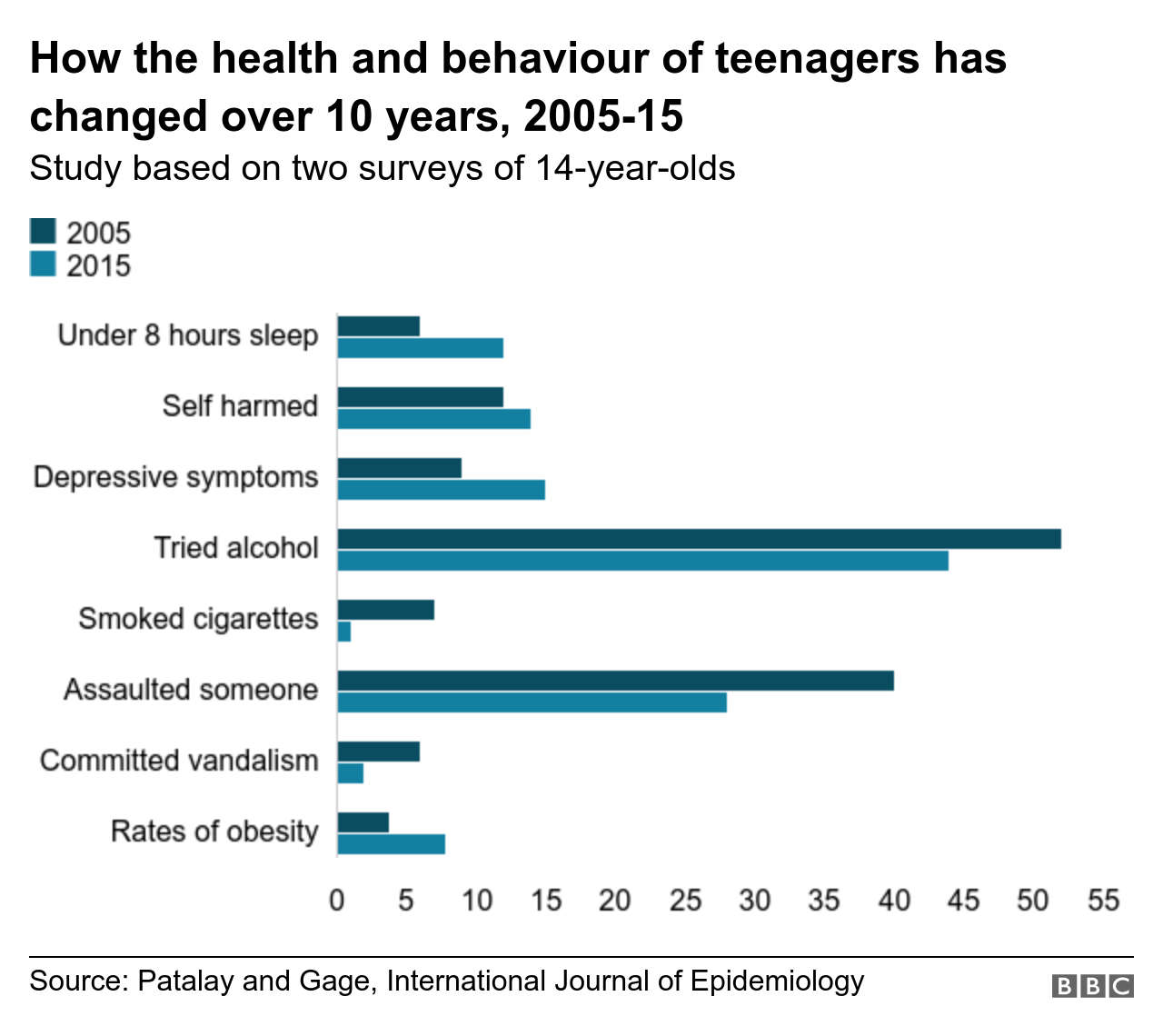
According to a study adolescents are more likely to feel depressed and are less likely to get a full nights sleep now than 10 years ago. However smoking, alcohol and anti-social behaviour were less common for 14-year-olds in 2015 than in 2005.
The University College London researchers said factors behind mental health may be changing. Charities are saying the rise in depressive symptoms was “deeply worrying”.
Researchers from London and Liverpool analysed data from two large groups of 14-year-olds. The first group around Bristol, born in 1991-92, and the second from across the UK, born in 2000-01. There were 5,600 young people surveyed in the first group and 11,000 in the second. In 10 years levels of depression in this age group increased from 9% to 15%.
Adolescents who said they had hurt themselves on purpose rise from 12% to 14%. The rate of increase was similar for boys and girls. The study showed that girls were most likely to self-harm. Whilst obesity and poor body image also rose, fewer 14-year-olds in 2015 had tried alcohol, binge drinking and smoking compared to 2005. They were also less likely to have tried cannabis or other drugs – 4.3%, down from 5%.
When sleep was tested it showed the 2015 group were most likely to go to bed later and wake up earlier, this means more of them were sleeping less than the recommended eight hours.
Dr Praveetha Patalay, associate professor at UCL and co-author of the study in the International Journal of Epidemiology, said research gave a better understanding of adolescent health, not only mental health in isolation.
“It’s a holistic view, with some things getting worse and some improving.
“We have to remember that lots of things are changing for young people – in different directions.”
The rise of mental health can be associated with social media, many celebrities or influencers create unrealistic expectations and body images which can make people have low self-esteem and body dysmorphia.

BBC
Emma Thomas, chief executive of charity YoungMinds, said: “The factors behind mental health problems are often complex, but we know that stress at school, bullying, concerns about body image, and the pressures associated with social media can all have a big impact,”
“To make matters worse, it’s often far too difficult for young people to get mental health support, which means that their problems can escalate unnecessarily.”
Dr Bernadka Dubicka, chair of the child and adolescent faculty at the Royal College of Psychiatrists, said: “This study provides further confirmation that young people today are struggling with mental health problems more than their 90s counterparts.
“The sharp rise in levels of depression and the increase in self-harm are worrying, as are the concerns our young people have around their body image.”